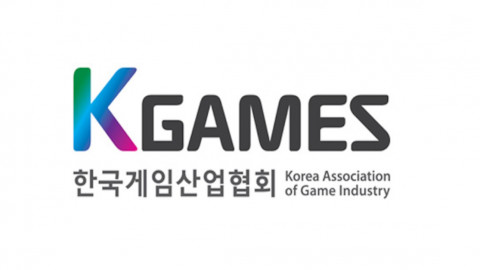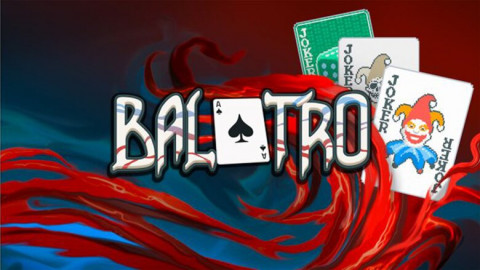
Recently, Lee "Faker" Sang-hyeok's reading habits have become a topic of discussion, to the extent that there is a section in a bookstore in Korea labeled "Books Read by Faker." Faker, who has been at the top of League of Legends for over a decade, has had a longstanding hobby of reading. He revealed on a Korean TV program that he picked up reading as a hobby around 2015 and has often been seen carrying a book when appearing in public.
On another recent TV show, Faker mentioned that one of the reasons he took up reading as a hobby was to improve his gaming skills. Although gaming takes place within a computer, he explained that he learned a lot from books about the thoughts and decisions involved in the gaming process. Additionally, he noted that through reading, his attitude toward life and perspective on life changed significantly, and he attributed some of the enjoyment of being a professional gamer to books.
Faker has read books across various genres over the years. When he first started reading, he focused on novels and history books. Subsequently, he explored humanities and, more recently, delved into psychology, science, especially neuroscience/brain science-related specialized books.
Last Christmas, he organized and shared the books he personally read through a stream. The following is a list of books categorized into five levels, each with Faker's brief comment. Level 1 includes easy-to-read and smoothly-flowing books, while Level 5 comprises specialized publications. To enhance readability, author names are enclosed in parentheses, and books written only in Korean are labeled as "Korean."
Lv. 1: Books that are easy for anyone to read, books that flow smoothly.
Lv. 2: Books that require concentration but are popular and enjoyable to read.
Lv. 3: Books that can be interesting if you have some understanding of the field.
Lv. 4: Books that require a deep understanding of the field and should be read with notes as needed.
Lv. 5: Specialized publications.
Le Sixieme Sommeil (Bernard Werber) - ?? - Lv. 1

during Inven's interview
Wide and Shallow Knowledge for Intellectual Conversation (Chae Sajang, Korean) - Lv. 2 - The content is good. The flow of the content is also good and expressed well in an easy language.
New Cosmos (David J. Eicher) - Astronomy Lv. 4 - Recommended to those who are interested in astronomy or looking to have a career in astronomy.
1Q84 (Haruki Murakami) - Lv. 2 - The first book I read. There was a book in the practice facility, and it was this book. It’s a book that shows the style of Haruki Murakami.
First-time Brain Science Stories (Yang Eun-woo, Korean) - Lv. 2 - Fun and easy book for beginners in brain science.
The Real Happy Pill: Power up your brain by moving your body (Anders Hansen) - Lv. 1.5 - A book that describes the positive effect of exercise on the brain.
Freud’s Chair (Jeong Do-un, Korean) - Lv. 2 - A book that interprets Freud’s psychoanalytic theory to make it easy to read.
Plane Sense (Kim Dong-hyeon, Korean) - Lv. 2 - A book that combines aviation history and information with society and history. Time flies if you read it on an airplane.
A Theory of Fun for Game Design (Raph Koster) - Lv. 2.5 - A book that outlines what games people like to play and why people like to play (recommended for game developers).
Memory Man (David Baldacci) - Lv. 1.5 - American novel. Don’t remember well, but the conflict among the characters was interesting.
Fahrenheit 451 (Ray Bradbury) - Lv. 1 - Classic novel. Classics are classics for a reason. Our thoughts and ideas matter.
How Not to be Wrong (Jordan Ellenberg) - Lv. 2 - A book that explains our behavior probabilistically from a mathematical perspective.
The Mind is Flat (Nick Chater) - Lv. 4 - I stopped reading in the middle. The description is difficult, and the style of writing feels more persuasive than informative.
The Camphor Keeper (Keigo Higashino) - Lv. 1 - A heartwarming read. Feels like it’s good to read at the end of the year.
What is a Nation (Rhyu Si-min, Korean) - Lv. 2 - Talks about the reason for the existence of nations with many philosophical examples. Made it easy to read in an easy language.
To Me Who Doesn’t Know Me (Ha Yoo-jin, Korean) - Lv. 1 - A book that explains the psychological aspects of young people's problems and offers solutions (recommended)
There is No Love (Arthur Schopenhauer, Edited and compiled by Lee Dong-jin from Schopenhauer’s essays, Korean) - Lv. 1.5 - A deeply insightful book about Schopenhauer, and a glimpse into his personal insights. Some parts are wrong in the modern perspective, but it highlights the insights of an individual person (beware, some things don't align with modern values).
No Second Earth (Tyler Rasch, Korean) - Lv. 1.5 - About the connection between humans and nature. Save Earth.
Dasan’s Last Study (Cho Yoon-jae, Korean) - Lv. 2.5 - Eastern philosophy. A book with many lessons. Made me think about the mind again.
The Murder in Mansion Hakuba (Keigo Higashino) - Lv. 1 - Mystery Novel. Easy to read.
Miracle Morning (Hal Elrod) - Lv. 1 - Self-help book. Motivational book. Realizing the importance of the morning.
Laplace’s Witch (Keigo Higashino) - Lv. 1 - Mystery Novel. Good for people who are starting to read Keigo Higashino’s book. Interesting.
The Martian (Andy Weir) - Lv. 2 - The original novel of the movie The Martian. Recommended for space geeks or anyone interested in Mars. Fiction, but scientific.
What Every BODY is Saying (Joe Navarro, Marvin Karlins) - Lv. 1 - A book to help you look at a person's behavior and roughly infer what they might be thinking. Great for light reading (Caveat: don't generalize).
Masquerade Game (Keigo Higashino) - Lv. 1 - Japanese mystery series novel. Easy read.
Norwegian Wood (Haruki Murakami) - Lv. 1.5 - Haruki Murakami's masterpiece. An esoteric book that reminds us of the importance of the people around us.
Sapiens: A Brief History of Humankind (Yuval Noah Harari) - Lv. 2.5 - Recommended for those who are interested in humans. Approached from an evolutionary perspective. Recommended for anyone interested in history. A highly recommended must-read.
How to Deal With Rude People While Smiling (Jeong Moon-jeong, Korean) - Lv. 1 - I think it was helpful for office workers.
Factfulness (Hans Rosling) - Lv. 2.5 - Why we misunderstand the world, a book that tells us what the world is really like.
Why We Sleep (Matthew Walker) - Lv. 2 - A modern, scientific approach to sleep, with facts, stories, and examples, written by a sleep scientist. A reminder of the importance of sleep (highly recommended).
The Source of Happiness (Suh Eun Kook, Korean) - Lv. 1.5 - An evolutionary explanation of why people are happy. A book that will make you rethink the value of happiness.
The Upward Spiral (Alex Korb) - Lv. 2 - A book that explains the neuroscience behind why we feel depressed and anxious (works even if you're not depressed).
Silent Spring (Rachel Carson) - Lv. 3.5 - The book that (almost?) first shed light on the dangers of pesticides. The historic book that shed light on the dangers of pesticides. A book about the importance of protecting nature.
The Miracles of the Namiya General Store (Keigo Higashino) - Lv. 1 - A heartwarming book. A book that makes you feel like you're exchanging letters with a friend.
Insta-Brain (Anders Hansen) - Lv. 2 - A book about concentration. A brain-scientific look at the downsides of social media and smartphones. A book that make modern people look back at their lives (recommended).

The Subtle Art of Not Giving A F*Ck (Mark Manson) - Lv. 1 - Self-help book. Motivational book.
Inner-side Communication (Kim Joo-han, Korean) - Lv. 4 - A scientific book that analyzes in depth how the mind works, while citing over 700 papers. Includes a scientific explanation of meditation. Recommended for anyone who wants to learn more about brain science and the mind (brick book) (Recommended for those who like brain science).
The Selfish Gene (Richard Dawkins) - Lv. 3.5 - Great classic. A detailed evolutionary and genetic explanation of the birth of many organisms. Explains the behavior of individuals in terms of their genes.

Stolen Focus: Why You Can't Pay Attention (Johann Hari) - Lv. 2 - The author's experience of a digital detox, a book that looks at the social, not the personal, reasons for our inability to focus. A social criticism book.
You Can Age Slowly Too (Jung Hee-won, Korean) - Lv. 2 - An active doctor sheds light on what it takes to be healthy.
Think Like a Monk (Jay Shetty) - Lv. 2 - A book that looks like a self-help book but contains life wisdom.

Sort by:
Comments :0







